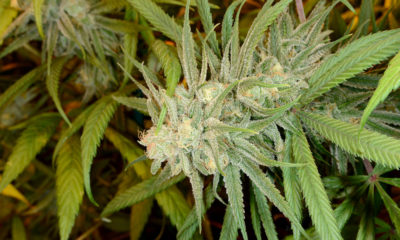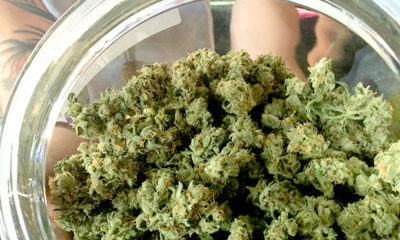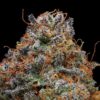
Medical
FDA Signals Support for Marijuana-Derived Pharmaceutical
Epidiolex inches closer to prescription approval, while government exposes own hypocrisy towards CBD, its active ingredient.
No pharmaceutical drugs derived from cannabis — a plant widely accepted as medicinal — are available in the United States. Dronabinol, sold under the brand name Marinol, comes close, but is based on synthetic THC, and not cannabis plant-derived cannabinoids.
This will change eventually and, possibly, sooner rather than later, after the federal Food and Drug Administration on Tuesday gave a positive recommendation for CBD-based drug designed to treat children with severe epilepsy.
Clinical trials testing the efficacy of Epidiolex — a drug designed and patented by GW Pharmaceuticals, which markets other marijuana-based drugs in Europe — have been underway in the U.S. for several years. And, as Bloomberg, Reuters and other outlets reported, the drug seems to be working.
There is “substantial evidence” that Epidiolex is effective in treating two rare forms of childhood epilepsy, according to an FDA staff memo released Tuesday ahead of a committee meeting scheduled for today.
Participants in one study experienced a 38.4 percent reduction in seizure frequency over a 28-day period with a 20 milligrams per day dose of CBD, as per the report, which also found no evidence to suggest that the drug could be abused or create a dependency.
The timing is remarkable for a few reasons. Yes, there is positive news about a cannabis-derived pharmaceutical timed with April 20. More importantly, the government is declaring CBD to be an effective active ingredient in pharmaceutical drugs, and to not be a drug of abuse, which entirely contradicts the government’s current definition of CBD as a Schedule I drug.
“CBD is currently a Schedule I drug,” the FDA notes, while simultaneously admitting, in a memo attached as an appendix, that “CBD does not appear to have abuse potential.”
Epidiolex is a plant-derived CBD extract, with some additives for flavor, that’s taken orally in syrup form. It has less than 0.1 percent THC, and is currently being considered to treat Dravet syndrome and Lennox-Gastaut syndrome, two very rare and usually untreatable forms of childhood epilepsy.
Cannabis’s value in treating seizures is responsible for its growing acceptance as legitimate medicine across the United States. Several conservative states with draconian drug laws, including Texas, now allow severely ill people to access CBD oil, though with significant restrictions.
As per its website, GW Pharmaceuticals is working on a bevy of other cannabinoid-derived drugs to treat a host of ailments including autism, schizophrenia, and nasty cancers like glioblastomas.
Tuesday’s announcement and today’s meeting could precede an FDA decision to allow Epidiolex to be marketed and sold in the United States as soon as June 27, according to Bloomberg.
The news is surely good for GW, whose stock spiked 11 percent on the news, according to Bloomberg.
But it’s also good for cannabis, which appears to be a medicine, according to agents of the U.S. federal government. Just as we all knew.
TELL US, have you used cannabis for medicinal purposes?





















